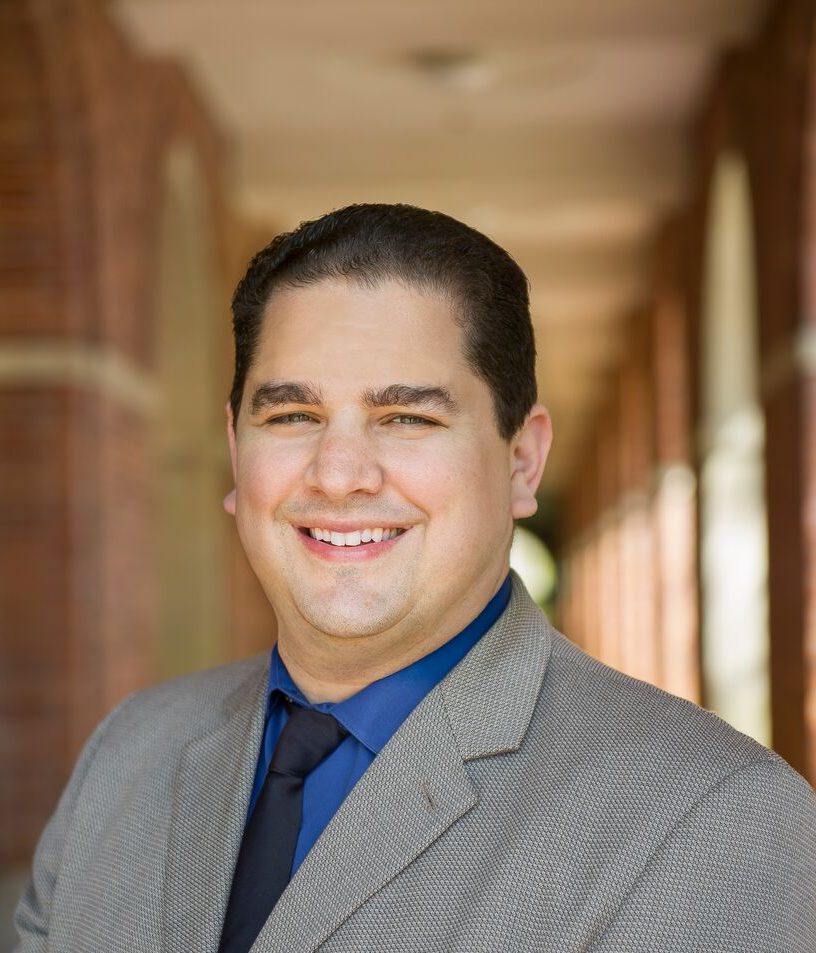
David Kirschner, Associate Dean of Admissions and Financial Aid, USC Gould School of Law
The Law School
What’s the single most exciting development, change, or event happening at your law school this coming year?
At USC Gould, we are approaching the 120th anniversary of the law school. We will be kicking off a year-long series of events celebrating that milestone with a special Conversation with the Dean program. We will be bringing together six deans, representing 50 years of Gould leadership, going back to 1968 with Dorothy Nelson, the first-female dean of a leading law school.
Additionally, we are so proud of the continued growth of our C. David Molina First Generation Professionals Program. To our knowledge, this was the first administratively backed FGP program at a top-tier law school. Just year, John Molina ’89, donated $3 million to name the program in honor of his late father.
The Admissions Process
What does the admissions process consist of and how is an application rated?
The admissions process is holistic in which we are seeking to answer two primary questions. First, whether an applicant appears capable of succeeding in the challenging academic environment at Gould. Second, whether the applicant will add to the fabric of the community we seek to build at Gould. To be admitted, the committee must be able to answer both of those questions affirmatively. With that in mind, an applicant should craft their application seeking to offer details that will inform our answers to the questions mentioned above.
Do you have an approximate hierarchy on what is most valuable for admissions: GPA, LSAT, etc?
While there is not necessarily a hierarchy, the factors are all related to one another. I believe the discussion above helps inform any answer as to how the various pieces of the application are evaluated. Judging success on the academic indicators is largely focused on the quantitative (or numeric factors) of the application, namely undergraduate GPA and standardized test score (LSAT or GRE).
Beyond numbers, how does your school determine who are the “best fit” applicants?
Evaluating “fit” is much more closely aligned with the qualitative factors of the application (personal statement, resume, letters of recommendation, and any optional pieces of the application). Gould is a law school that prides itself on collegiality and a sense of community. So, via the “soft” factors of the application, we are focused on finding individuals who are going to add to that sense of community. This is normally an applicant with a well-rounded set of interests and/or activities. This can include being active in student organizations, participating in athletics or a Greek organization, as well as completing an internship. It also includes experience in the workforce, whether that is during college or post-graduate work experience.
Are students who apply early in the cycle at an advantage over applicants who apply later?
The short answer to this is yes. While the admission standards are not more relaxed earlier in the cycle, it is a matter of supply and demand. Early in the cycle there are far more seats available, hence, a degree of flexibility in making offers for those seats. Later in the cycle, when the admissions committee has more information as far as hitting various targets, there is less flexibility. Additionally, applying early is quite beneficial when considering the limited amount of scholarship dollars. I strongly encourage applicants to apply by our February 1st priority deadline and not wait until the final April 1st deadline.
LSAT
What is your view on multiple LSAT scores?
We will focus on the highest LSAT score as that is what we report to the American Bar Association.
Is a high LSAT score achieved on the second or third try viewed differently than a first-attempt high score?
Not necessarily. However, our committee does understand that most subsequent LSAT scores will fall within the same score band of the first attempt. We ask applicants with multiple scores and a significant score differential to include an addendum if they believe there is an explanation for such a discrepancy.
Personal Statement
Could an applicant significantly improve his or her chances of admission by drafting a personal statement specifically for your school, as opposed to a general personal statement that briefly mentions your school, if at all?
A personal statement specifically addressed to Gould is normally not going to be a deal-maker or deal-breaker. This is because the personal statement is the primary opportunity for an applicant to discuss who they are beyond the application basics. We are particularly interested in how an applicant’s background (academic or otherwise) has led to your decision to study law. If that can be tied to a specific interest in Gould, then wonderful!
Letters of Recommendation
Applicants often have difficulty choosing and approaching potential recommenders. Can you offer some general advice regarding letters of recommendation?
The most influential recommendations focus on academic potential and are written by people who can evaluate academic performance. Although recommendations not pertaining to academic abilities can be helpful, academic recommendations carry the most weight with the Admissions Committee. If an applicant has been out of college for a number of years, a letter from an employer would be appropriate. We encourage employers to discuss written and oral communication skills, leadership abilities and potential for the study of law.
Early Decision
Do applicants, especially those with numbers that fall below your law school’s medians, increase their chances of admission by applying Early Decision?
No, the standards to be admitted early decision are just as strong as those for the regular admission pool.
The Waitlist
What is the typical size of the waitlist, and how deep do you usually go into the waitlist to admit students?
We normally keep a waiting list well into the hundreds. In recent years, the number of students admitted from the waiting list has been low, no more than the teens or low twenties.